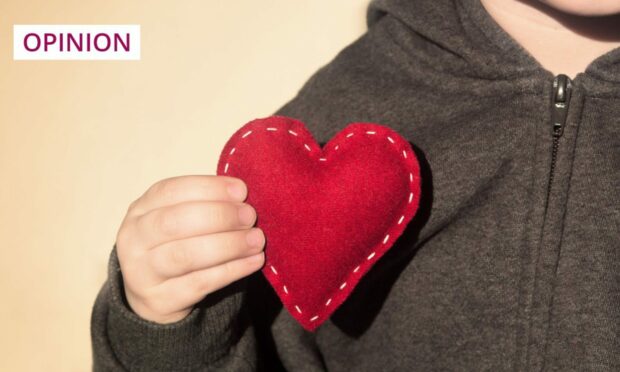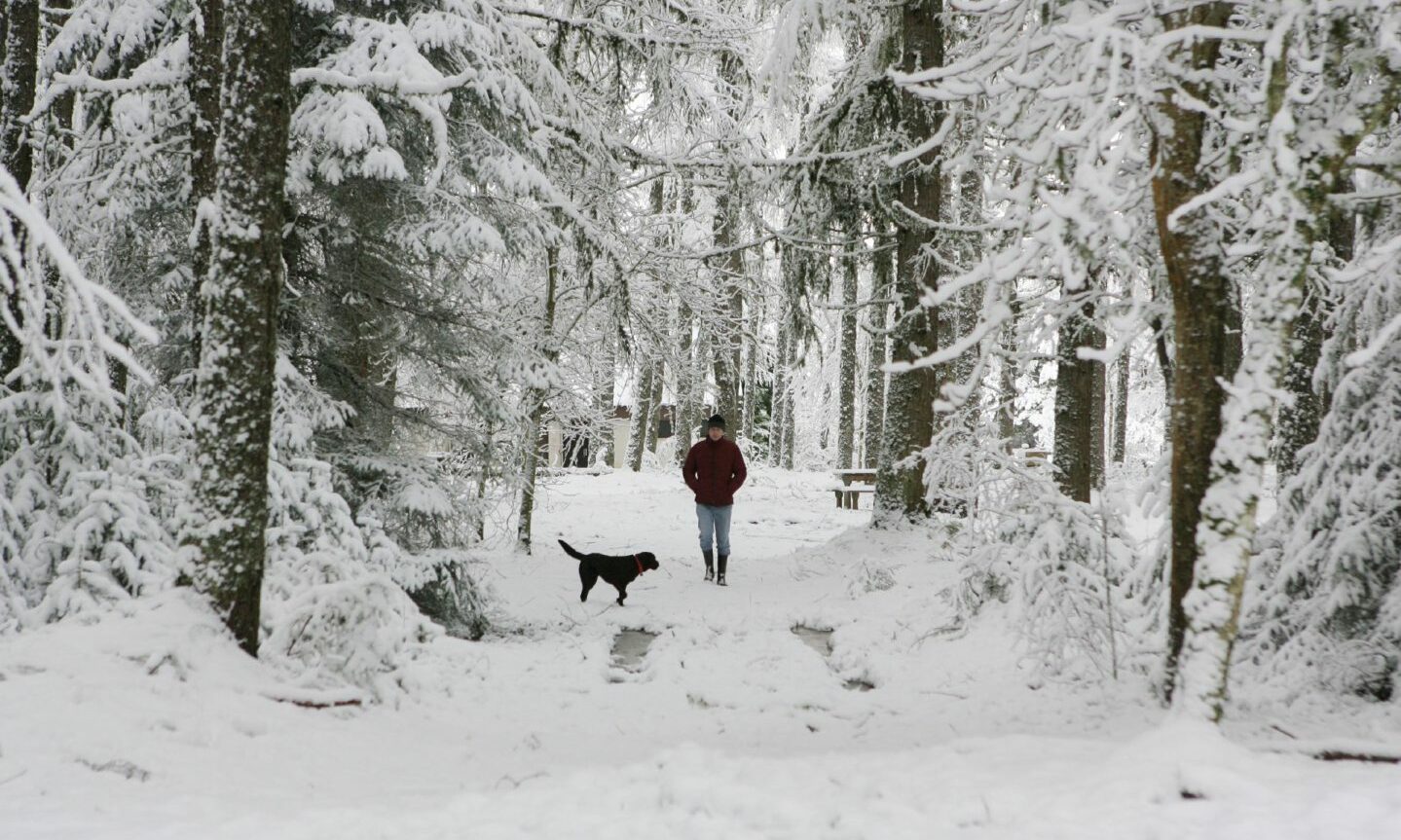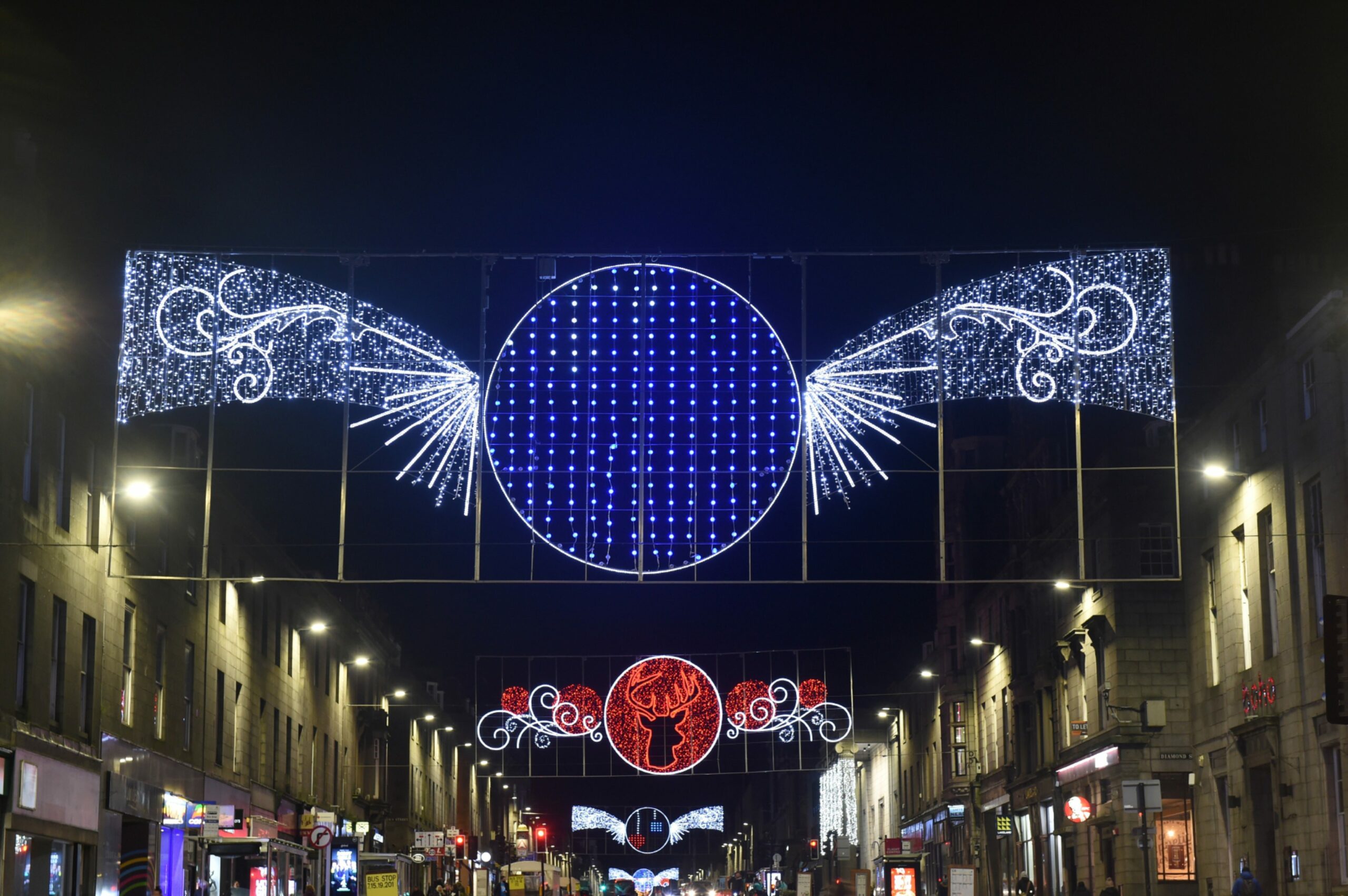We’re all coping with a lot, but many have much more going on than others can even imagine, writes Kerry Hudson. Let’s focus on being gentle and generous.
‘Tis the season to be jolly, fa-la-la-la-la, la-la-la-la, or so the song goes. But, I’m here to let you off the hook.
It’s mid-December, and I think it’s safe to say we are all tired. This year has been harder than many of us anticipated. The cost of living crisis, soaring energy bills, strep A outbreaks, and a general winter of discontent as cuts and wage freezes mean that workers are forced into industrial action. It doesn’t feel like such a merry Christmas after all.
In fact, I’m conscious that, not just this year, but every year, Christmas can be the hardest time for many. Perhaps because of complicated family circumstances, bereavement or estrangement. Money, work, or what is going to happen to our planet and politics worries.

My living room currently looks like an elf threw up in it, and I’ve been saying: “It’s almost Christmas!” since Halloween. But, for much of my thirties, I didn’t celebrate at all, and actively dreaded the month of December.
Single, estranged from my family and reluctant to accept insistent, well-meaning friends’ “orphan Christmas” invites, I spent the day alone. Trying to be grateful I had a home; food to stave off sadness.
I gritted my teeth, chose a box set, loaded the fridge with non-Christmassy food, drank a bit too much, and hunkered down until December 27, like I was waiting for a natural disaster to pass.
Eventually, I wanted to be productive, rather than spend a whole month of the year unhappy, so I started volunteering at Christmas, which, in turn, reminded me that a celebration can be whatever you want it to be. No, one size doesn’t fit all, and it’s OK if yours looks more like an Ingmar Bergman than a Hallmark film.
Everyone has their own struggles
Now I have my own little boy, and I’m gleeful for any excuse to bring some magic into his life. But I still vividly recall those lonely Christmases, and know why many won’t be decking the halls.
As a general rule, especially around the Christmas holidays, I try to be mindful that everyone is probably struggling on some level: physically, mentally or emotionally. Certainly, no one I know intimately got through the last few years without some form of heartbreak or setback.
I’m trying to treat strangers just as I do my close friends, with extra care, gently and kindly, with the knowledge that most of us have our struggles even if they’re well masked.
Now, when I think something nice about a stranger, I say it to them. Having worked in retail at Christmas, I don’t expect workers to be singing carols every hour of their round-the-clock shifts, or even smiling – they’re tired, too.
I stop and wait when I can see someone fancies having a chat with my toddler or a pet of my dog. Not that any of this is altruistic; it does my heart good, too.
‘Kindness makes you happy’
I’ve also been the recipient of this sort of goodwill recently. This week, while getting on the bus to meet my new colleagues at the University of Glasgow, the woman in front of me, for no reason at all, tried to pay for my ticket, saying: “Kindness is a good thing. It makes you happy.”
There’s no way she could’ve known that I’d been flat out on my back for two weeks with a virus that my steroid-addled immune system couldn’t quite shake, nervous to meet my esteemed new colleagues, and fretting about imminent deadlines. Still, thanks to her, I went to sit in the cold upstairs on the bus, basking in the warmth of someone else’s unnecessary and unconditional generosity.
The next day, the train guard came out of our local station ticket office and gave our toddler a bag of crisps, explaining that her colleague keeps a big box of them behind the counter, because kids know that when they go to that station, they’ll be given “a wee treat”.
It was just a bag of Quavers. She probably thought nothing of it. But, all day we walked around with our little boy, staring delighted at the twinkling Christmas lights of Buchanan Street, feeling truly at home.
A piece at every door
I tried to remember and explain to my London-born husband the Scottish concept of “a piece at every door” from my childhood – initially hilarious, because he thought I meant a gun. I told him: “It’s just… where there’s an understanding that, when they can, everyone will do a small something for everyone else.”
We’re all coping with a lot, but many have much more going on than others can even imagine
So, yes, I’m removing the expectation from people around me to be jolly this Christmas. We’re all coping with a lot, but many have much more going on than others can even imagine.
Instead, I’m choosing to treat everyone with kindness and warmth, assuming they have been through hardship, and being genuinely grateful when someone does the same for me. In that spirit, however it looks for you: merry Christmas.
Kerry Hudson is an Aberdeen-born, award-winning writer of novels, memoirs and screenplays


